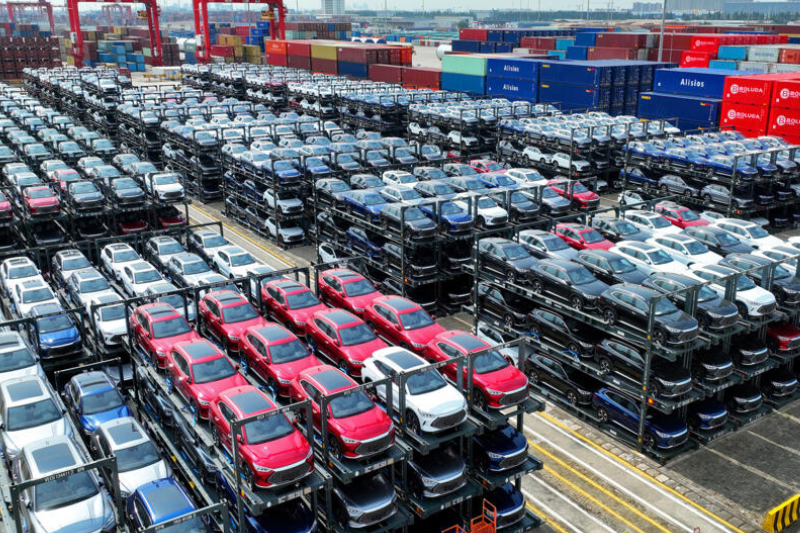
Electric Cars: EU Pushes Against China’s ‘Anti-competitive Behaviour’
“Europe is open for competition, not for a race to the bottom,” Ursula von der Leyen, the president of the European Commission, announced during her annual State of the Union speech in Strasbourg, France, on Wednesday.
The EU will launch a probe into Chinese subsidies of electric vehicles, the bloc’s top official said, in a move that highlights the deepening industrial and geopolitical competition between Europe and China. The inquiry could trigger trade restrictions, such as import tariffs on Chinese vehicles.
China’s Practices Earlier Affected Europe’s Solar Industry
Von der Leyen described the electric vehicle sector as “a crucial industry for the clean economy, with huge potential for Europe.” But cheaper Chinese electric cars continue flooding global markets, with their costs “kept artificially low by huge state subsidies,” she added.
Currently, Chinese automakers are enjoying a dominant position in the international electric vehicle industry. They see Europe as a significant potential market. But European automakers have raised concerns over unfair competition from China.
Companies in Europe are racing to expand their battery-powered lineups, but are worried about the unfair competition from Chinese models that can be sold at a relatively low price, thanks to massive subsidies from the government in Beijing.
Keep Reading
In China, government programmes promoting the production of electric cars picked up speed in the early 2000s. By 2009, the country had already set a clear objective of becoming a global player in the sector in the next few years.
It was offering subsidies of $8,800 per car for taxi fleets and local government agencies in 13 Chinese cities to purchase all-electric or hybrid gasoline-electric cars. Today, Chinese makers are stepping up efforts to dominate the EV industry in Europe and elsewhere.
EU Asked To Consider “Possible Counter Reactions From China”
During her address, von der Leyen shined the light on how “China’s unfair trade practices [had] affected our solar industry.” In the late 2000s, Beijing pumped a huge amount of money into solar energy technology, allowing Chinese manufacturers to increase production.
The spike brought a drop in the price of panels, pushing scores of European and American companies out of business. Nevertheless, the German Association of the Automotive Industry has asked the bloc to consider “possible counter reactions from China.”




